Muro Box, the world’s first app-controlled music box, is developed and produced in Taiwan.
You may not know that, in the past, about 40 percent of music box movements in the world were actually made in Taiwan.

Muro Box, the world’s first app-controlled music box, is developed and produced in Taiwan.
You may not know that, in the past, about 40 percent of music box movements in the world were actually made in Taiwan.

Have you ever visited the real birthplace of traditional music box movements? We do.
Since 2016, when we decided to invent Muro Box, we have went to the real birthplace of music boxes many times. And the assembling and packaging of Muro Box happen in the same place.
We made a documentary video to record the precious images because many scenes were gone forever after the factory is turning production lines into a music box museum.
Have you ever wondered how the tiny figures can dance along the music on your music box? The key to creating the dancing motion is found within the music box movement.
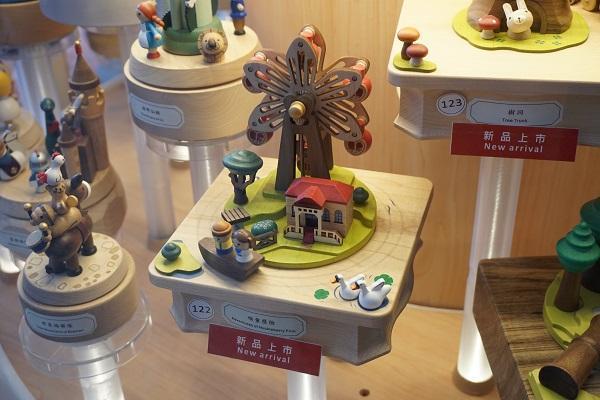
Although there is a glorious past, now only one music box factory still exists in Taiwan. As the only music box manufacturer, Kyooh’s 40-year old music box history has piqued our curiosity.
We love music boxes, so we want to share this hidden history of a traditional music box industry with you. In fact, the 40-year history of Kyooh Precision Industry Co., Ltd. reflects the contemporary history of the music box industry.
Many people imagine that music boxes are made by skilled craftsmen. The true birthplace of music boxes is found among giant machines and long assembly lines.
In fact, automation has made the process much faster and more precise. The music box industry is using modern technology to standardize the production procedure. Automation has allowed music box producers to provide customers with affordable prices like never before.
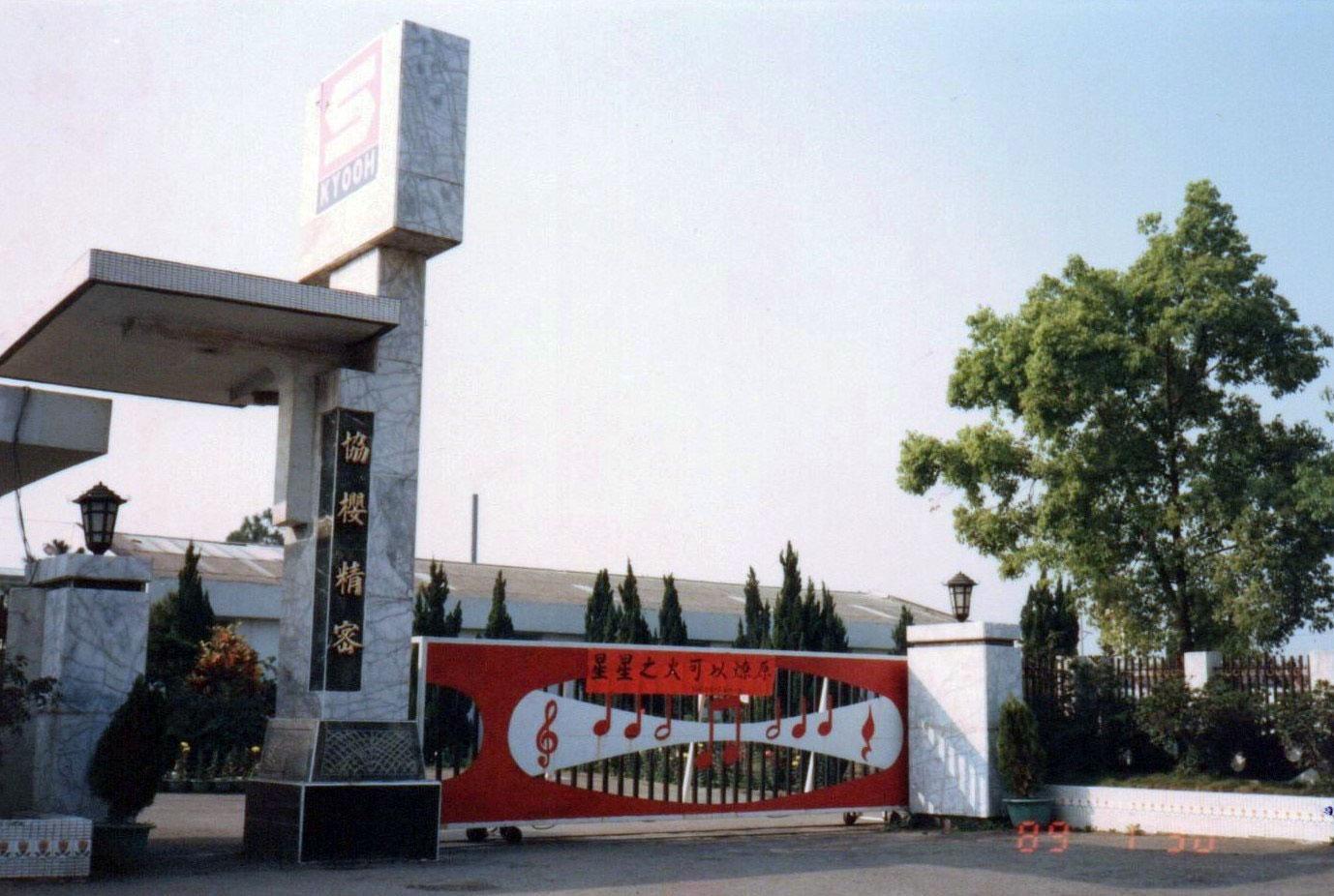
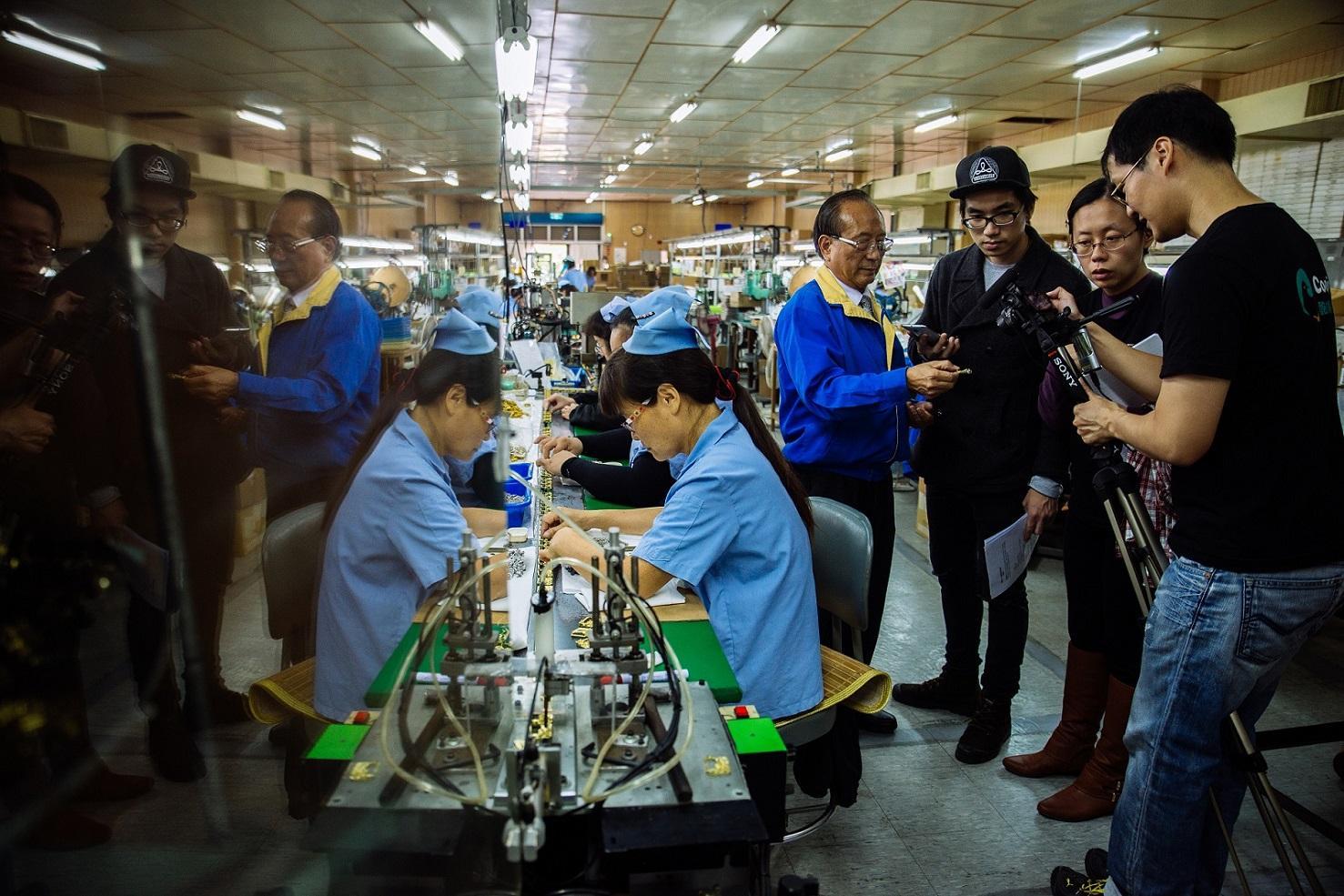
In our interview with Mr. Huang, the general manager of Kyooh Precision Industry Co., Ltd., he disclosed the mysteries of the music box industry.
Mr. Huang said, “In 1979, Taiwan was the main factory who exported the majority of music box movement to the world.”
At that time, Sankyo, the Japanese music box industry was seeking a new oversea production site for manufacturing music box. Mr. Huang was selected to take a series of technical training in the headquarter of Sankyo to learn all the manufacturing skills.
Later, when he finished the intensive 6-month training in Japan, he founded Kyooh Precision Industry Co. Ltd. from the ground up in Taiwan.
Mr. Huang gave us two examples of how his company achieved better performance than Sankyo’s original standard.
He said, “Sankyo’s standard for shipping is to make sure that noise from the music box movement is below 60dB. However, our company even reduced the noise significantly to make it lower than 45 dB.”
Furthermore, Sankyo’s standard for the rotation rate of a 18-note music box movement is 18 seconds plus or minus 2 seconds per round, but Kyooh could meet a stricter standard: 18 seconds plus or minus 1 second per round. It is hard to imagine that how much effort has been invested in refining such a tiny music box movement.
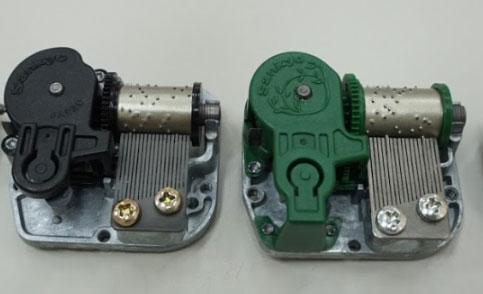
Mr. Huang told us that the Sankyo team once used blind test to compare the sound quality of Sankyo’s design and Kyooh’s design. To their surprise, nobody could differentiate the two designs from only listening to the sound quality.
Another interesting example is that when the Japanese Mint Bureau wanted to order a set of high-quality music boxes as the special gift to celebrate its anniversary, they decided to order from Kyooh, instead of Sankyo. Their decision has pushed the developing team of Sankyo to refine their design.
Have you seen a matchbox-size music box before? This kind of mini 18-note music box movement was invented by Mr. Huang. No matter whether it has a strip to pull, a handle to turn, or a switch button to push, they are all designed and made in Taiwan.
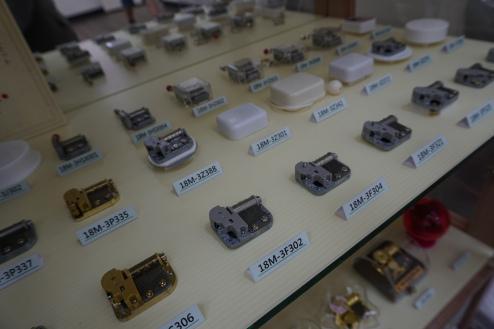
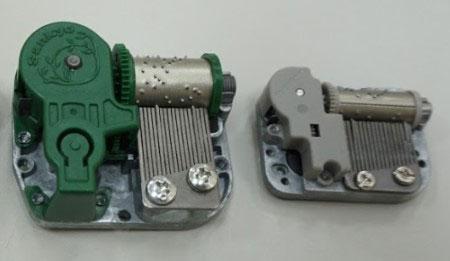
Mr. Huang also shared the secret with us. He said that the material one uses can have a profound effect on the quality of sound. The best material for the frame of the music box movement is zinc alloy. This metal enables the music box to create a deep and warm tone for each note.
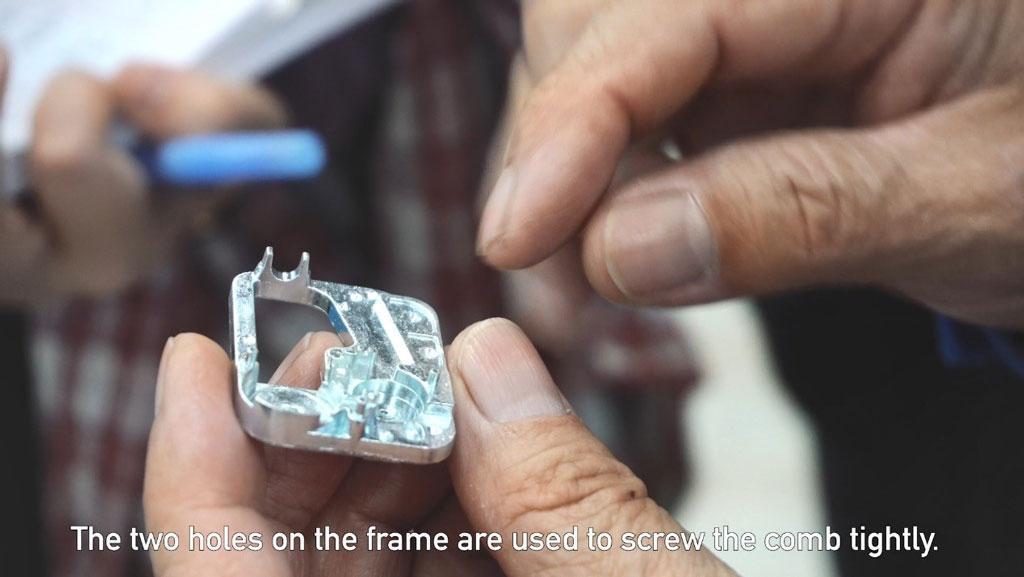
Another key component is the comb. A traditional 23-note comb has additional lead on it to amplify the bass in the lower range. However, a product containing lead cannot pass the safety check for EU and US. Therefore, Kyooh has redesigned their combs to make it lead free.
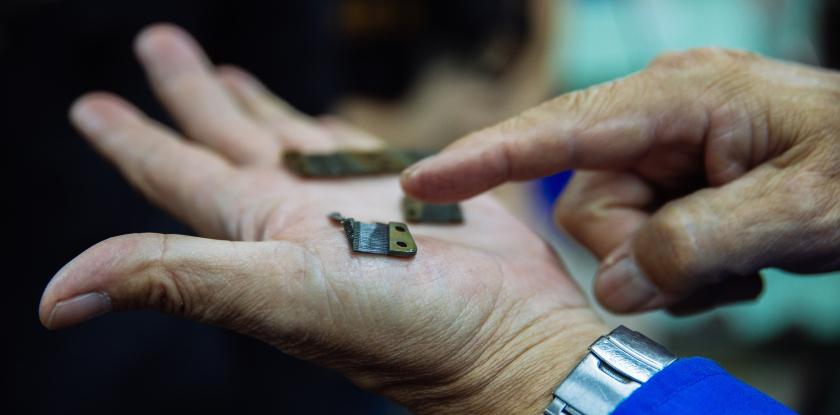
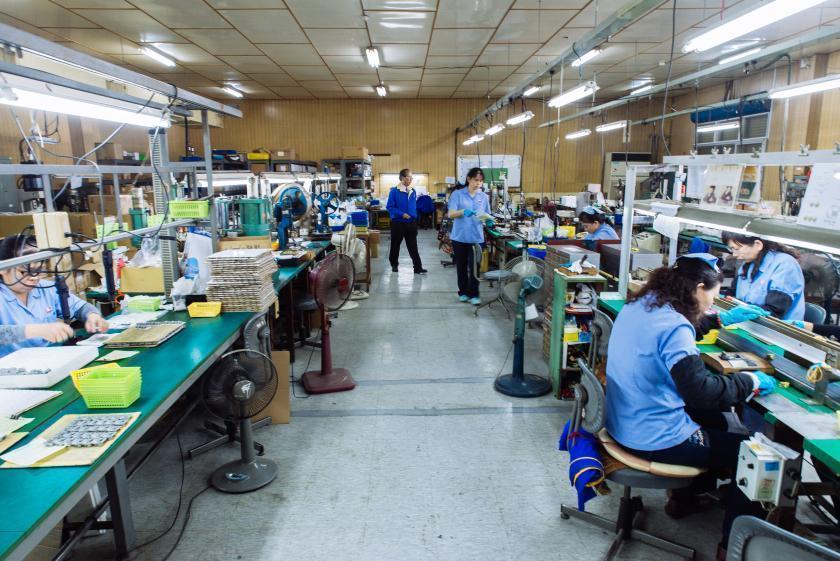
According to Mr. Huang, the US music copyright infringement lawsuit against Sankyo in the 80’s was a turning point for the industry. Many dealers who imported music boxes to the US were afraid of being sued for copyright infringement, they stopped ordering music boxes that containing new songs.
Without any new songs, the demand for music boxes diminished. As a partner company of Sankyo, Kyooh’s business was also affected since this turning point.
Mr. Huang also told us another key reason that has changed fate of the music box industry in Taiwan.
He said, “in 1981, the yearly global demand for music box movements is about 90 million pcs, and the exported music box movement from Taiwan per year is about 30 million pcs.”
However, when many Taiwanese industries started to outsource the work to the China to save their production cost, Kyooh has also followed this wave to built a factory in Dongquan, China.
When Kyooh’s music box manufacture business just started in China, the demand for music box increase every year, and the highest record reached 1 billion pieces per year. However, the current demand has shrieked to 40 million pieces per year.
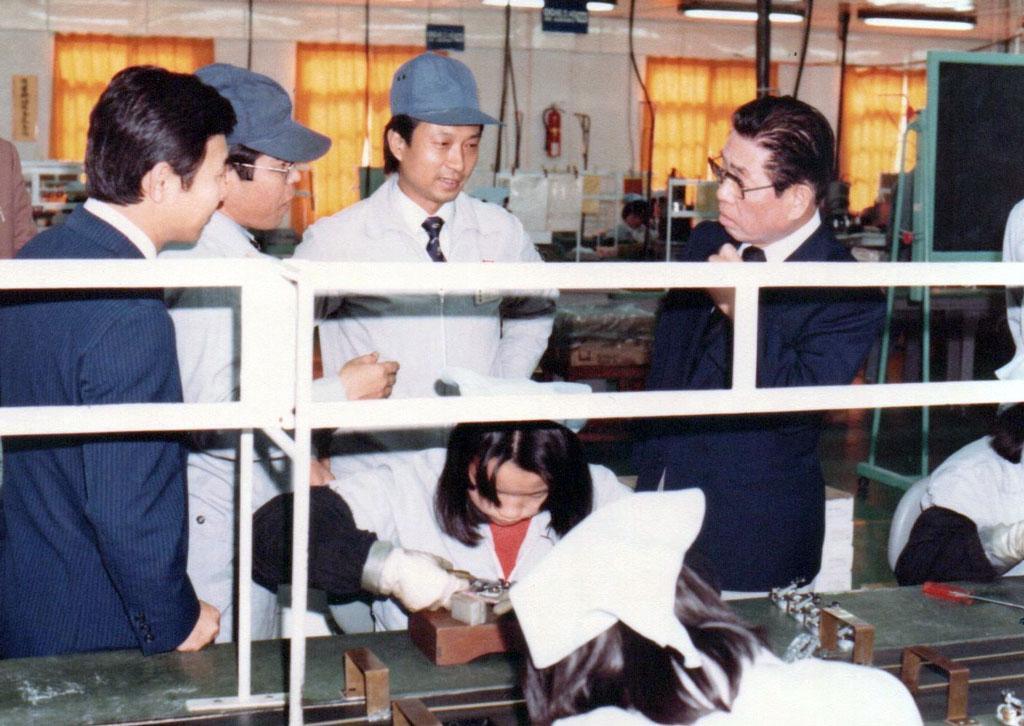

To Kyooh’s surprise, the abandoned parts and molds that did not meet their quality standard were collected by the local competitors. Those abandoned parts and molds have helped the competitors to produce similar music box movements with poor sound quality and lower production cost.
They also sold music box movements with much lower price in order to get more customers’ orders. The appearance of low-quality music box movements has put the life of authentic music box manufacturers like Sankyo and Kyooh in danger.
Have you ever visited Otaru Music Box museum in Japan? Do you know that all of the movements in those beautiful music boxes are all made in Taiwan?
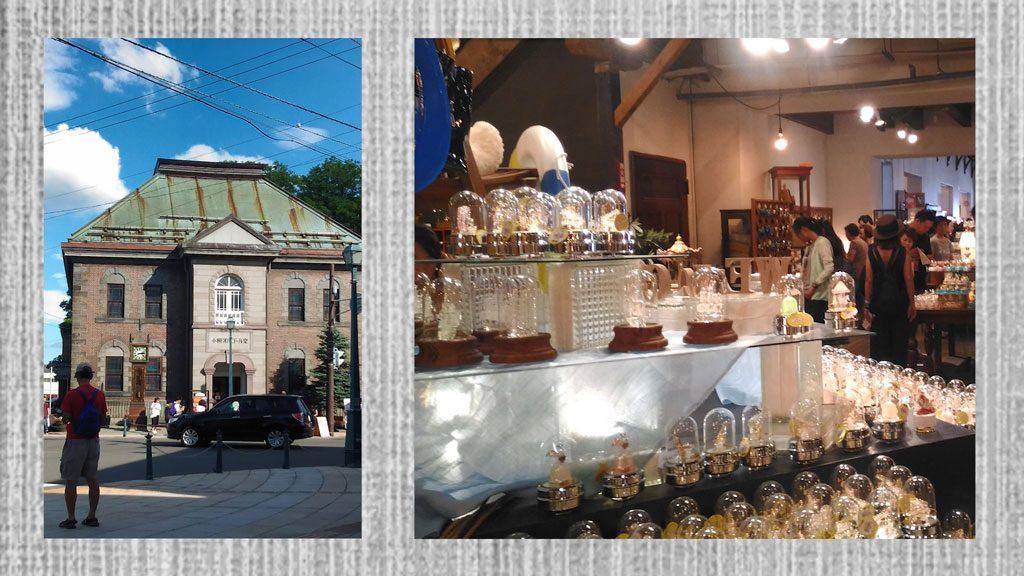
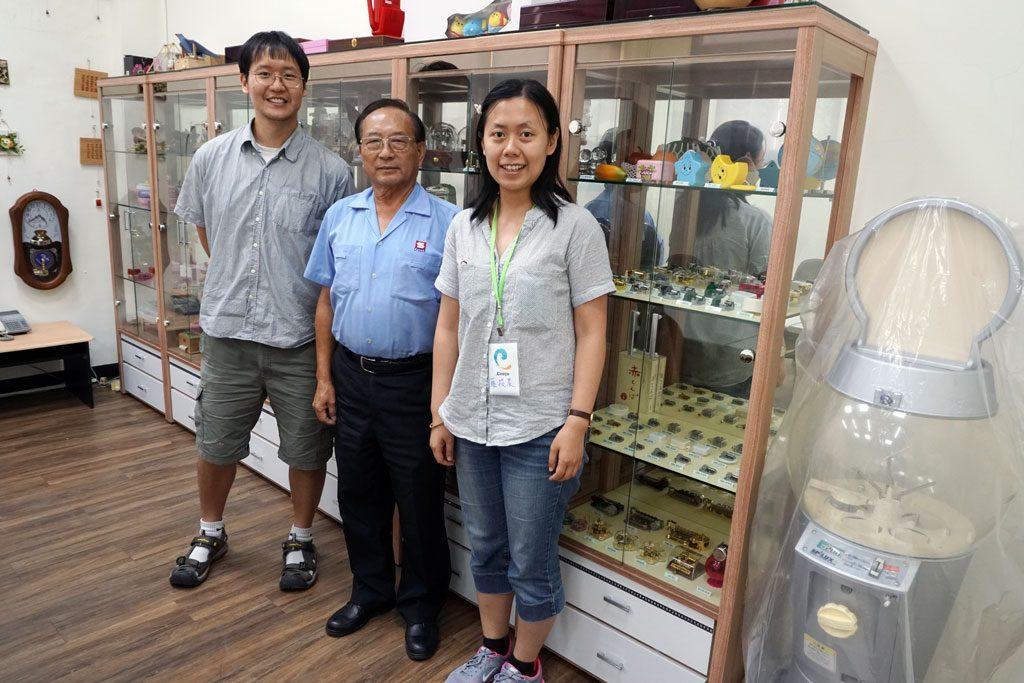
Now, Kyooh has turned a part of its factory into a music box museum for individual tourists and schools’ educational trips. There are two new buildings in this park.
The first building, the museum, was turned from old production lines. It exhibits various kinds of music box movements produced by Kyooh for global distributors. The Muro Box is also displayed in this museum. There is also a classroom for group reservation to learn how to assemble a music box movement.
The second building is the gift shop for customers to buy music box movements to DIY their own music boxes. There are also some children’s playground facilities to welcome kids, such as the steam train, the tree house, and the grass slide.
If you are interested in learning more about this museum, welcome to visit their Facebook Fan Page @sankyomusical (台灣現代音樂鈴博物館) to learn more about its latest deals and traffic information.
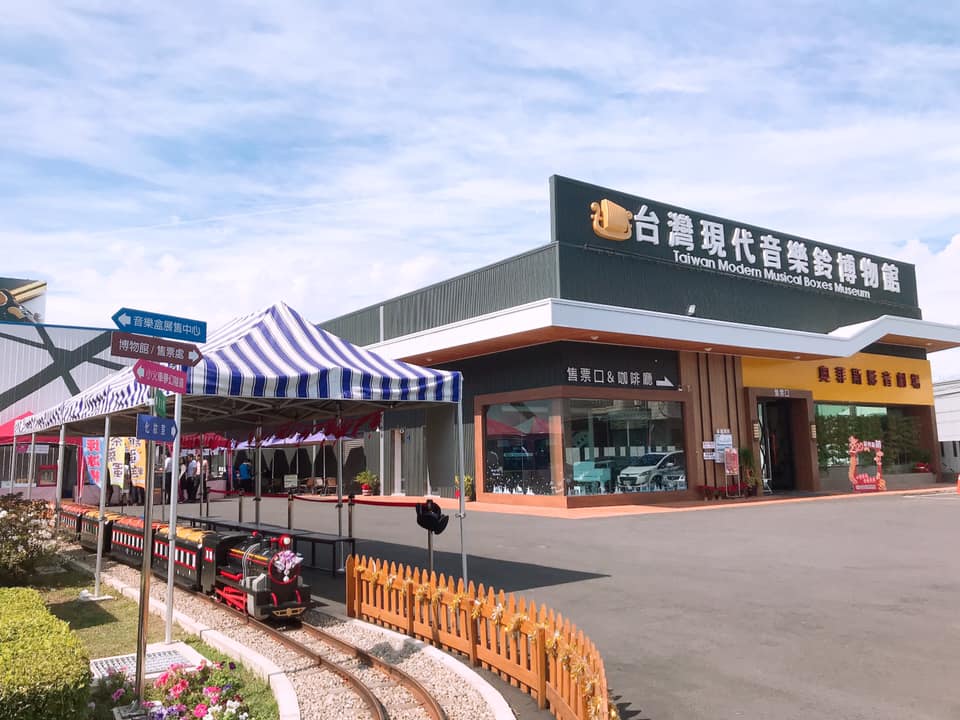
In the above interview, Mr. Huang mentioned two major reasons that contributed to the decline of demands for music box are: the competition from China with poor quality, and the dispute about music copyright. Here, we shared our views based on our several years experience in the music box industry.
First, even though the price competition will bring impact to the industry, we do not think it is the main reason for its decline. We think that the lower price should bring higher demand. However, the statistics of the numbers of exported music box movements from both Taiwan and China are declining significantly from 100 million units per year to only 40 million units per year. This change of number suggests that there is another reason that contributed to the sharp decline in the global demand of music box movement, and lowering its price cannot change this trend.
We think the music copyright dispute is not a major reason. Nowadays, people have more diverse preference in music. Even though the cost of obtaining the copyright for editing a melody for music box movement does not rise across years, when people have more diverse tastes in collecting music, they will find that it is getting harder and harder to find a melody they really love in music box stores. When the manufacturers cannot make enough profit, they tend to reduce melody collection for customers to choose from. Then, the fewer melody options also reduce customers’ interest in buying a music box gradually. That’s how a vicious cycle is formed.
In short, we think the key factor is that the expansion of new melodies cannot follow the trend.
“How much should a customer pay to get a new music box movement to play a customized melody? “We asked Kyooh this important question.
The answer is about 250,000 NTD (=$920 USD). This price includes the mod’s design fee, the production fee for its cast and the music box movement itself, and the music arranger’s service fee. This price has not consider the extra cost on obtaining the music copyright for arranging its melody, and the final product of the customized music box melody will be only 15 second long.
This price only makes sense to a factory, and it is obviously not a regular customer’s acceptable price. Kyooh told us that in the past 40 years of their business, only one unique customer has paid 250,000 NTD (=$920 USD) for getting a music box playing his own music.
Hence, we think that setting a reasonable price for individual customers to get the melodies they love for playing on the music box is the core problem to be solved in this industry. That’s why we hope our product, Muro Box, can solve it. Now, Muro Box-N20 has two versions: Lite vs. Standard. You can use less than half of the price (920USD) to play the melody you want.
It will be like a small automatic piano to play your favorite melody. You can import the melody you like via our mobile app, and the Muro Box will play the music based on your programmed/imported melody. Because the source of music comes from your own creation and its melody is based on your input, it solves the vicious cycle caused by the high production cost and music copyright fee.
During our interview with Mr. Huang from Kyooh, we saw many types of music box movements designed and produced by Kyooh: disc music box, cylinder music box, string music box, 18-note music box, 20-note music box, 30-note music box, 50-note music box and even the 80-note music box for music box collectors. If we do not keep fighting, the music box industry will continue shrinking and the manufacturer of music box movement may be gone soon. Since the manufacturer has started to turn their production facilities into a museum for tourist, it is predicable that the golden time of music box industry has passed.
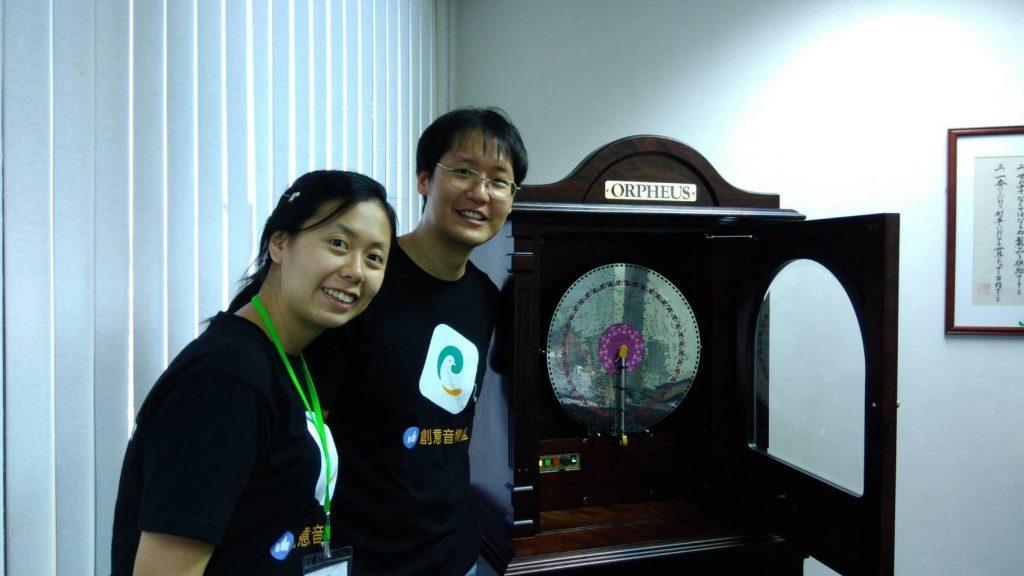
We collaborated with Kyooh Precision Industry Co. Ltd. to produce the smart music box, Muro Box-N20 (20-note version), which launched its first crowdfunding campaign on the Taiwanese platform ZecZec in 2018 to validate market demand. In 2020, it also received great acclaim through international crowdfunding on Indiegogo and in Japan via GREEN FUNDING.
In response to requests from customers in over 50 countries, we decided to develop the Muro Box-N40 Standard and Sublime editions, expanding the range to 40 notes including semitones (black keys). These models are designed specifically for music creators and collectors who seek greater accuracy in playing custom-composed melodies on a music box.
Our Muro Box-N40 crowdfunding campaigns on Wabay (Taiwan), Kickstarter and Indiegogo (U.S.) in 2023, and GREEN FUNDING (Japan) in 2024 were all met with strong support from both new and returning customers—once again proving the miracle and pride of Taiwan-made craftsmanship.
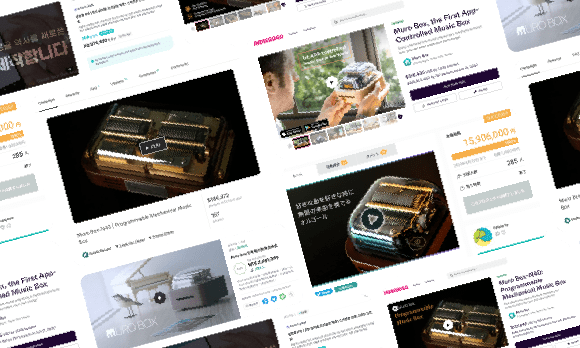
The music box industry has existed for over 200 years—and it’s still here today. What matters most is helping more people understand the current situation, so that those who care can find a way to contribute. We’re deeply grateful to all the fans who supported us during our crowdfunding campaigns by pre-ordering our products. Your support is our greatest motivation to keep moving forward.
We invite all music box enthusiasts to stay tuned for updates on our latest products and to continue supporting the music box industry. Let’s work together to preserve and pass down this beautiful, global tradition right here in Taiwan.
Check out our brand new 2025 release: Muro Box-N20 Lite Go.
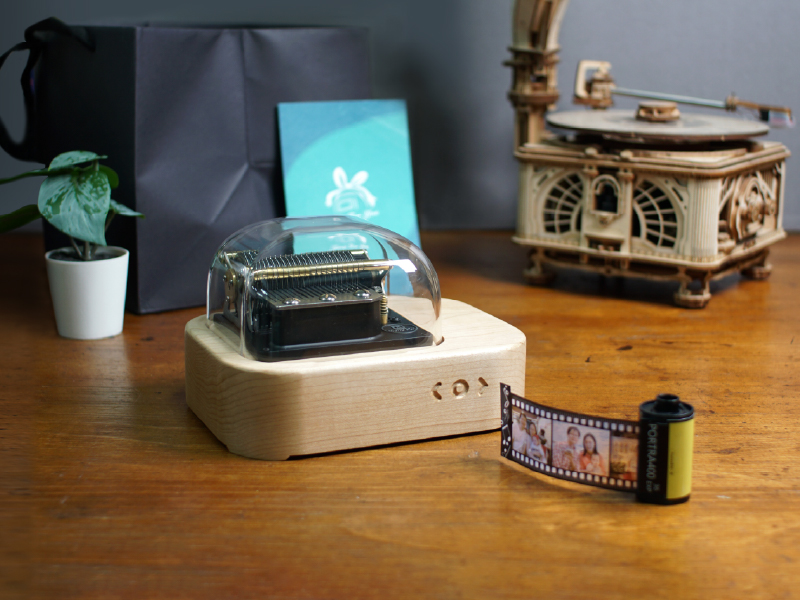
Muro Box’s New Models: N40 Sublime & N40 Standard – Now Available for Pre-Order
Subscribe Newsletter|Discover the Secret Behind Muro Box & Get Special Rewards
